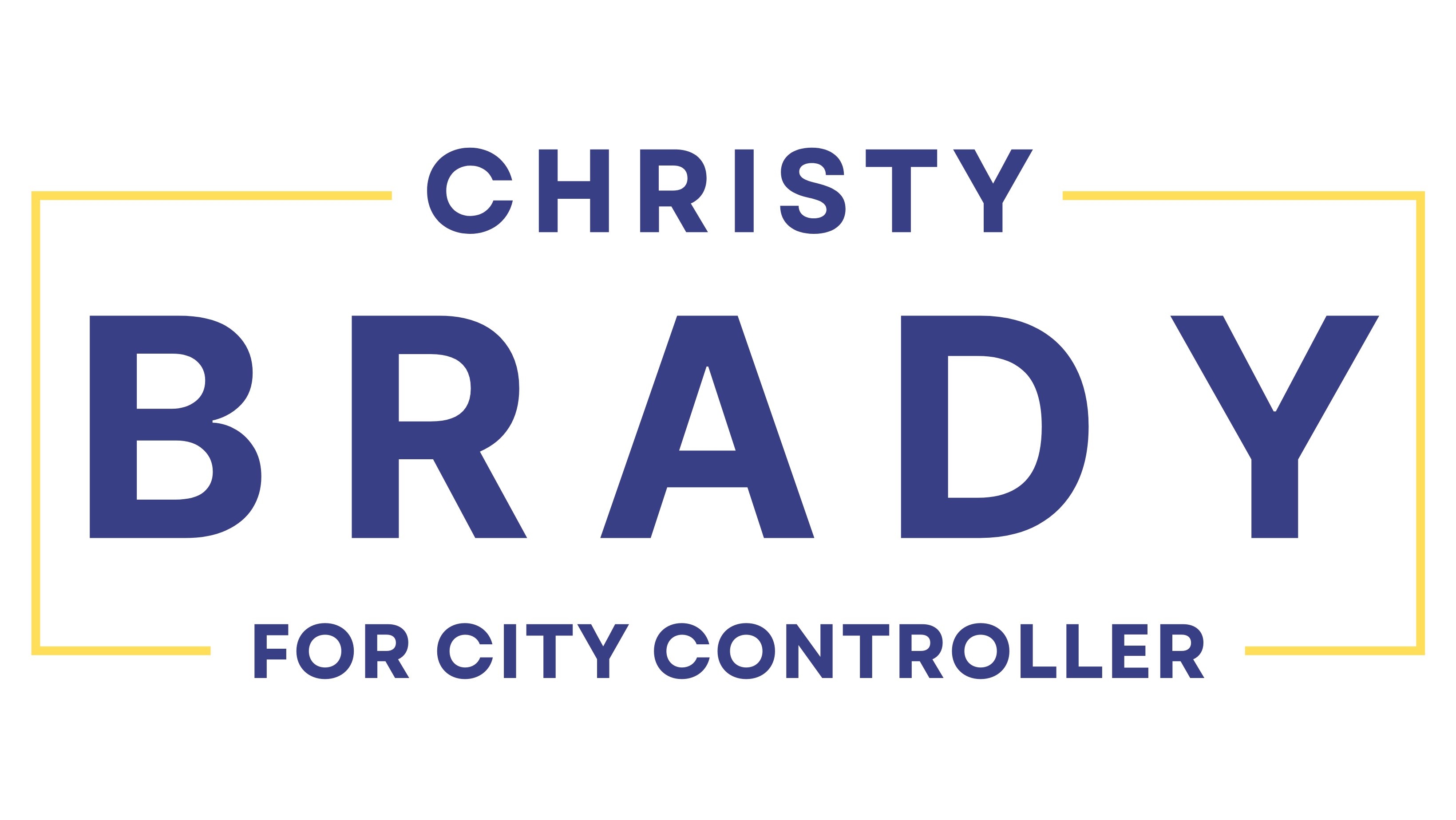Christy's Priorities
Throughout her career as a public servant, Christy Brady has brought people together to solve complex challenges and deliver meaningful results for the citizens of Philadelphia. As the current City Controller, Christy is seeking re-election to continue advancing her work in moving Philadelphia forward and addressing its most pressing issues.
With firsthand knowledge of the office’s capabilities and resources, Christy is ready to build on her proven track record and implement her vision for the city. She believes that safer neighborhoods, expanded economic opportunities, and educational excellence can be achieved while improving government efficiency and increasing revenues.
Christy is committed to leading audits, financial analyses, and investigations that will enhance the safety of neighborhoods and the quality of education for children, while creating a positive economic impact for both residents and the city’s finances.
Christy will lead audits, financial analysis, and investigations that can improve the safety of our neighborhoods and the education of our children while having a positive economic impact on the citizens and city finances.
The Underground Economy
The underground economy in construction and development poses significant dangers to workers, residents, and first responders. The process often begins when unscrupulous developers misclassify workers as independent contractors and pay them cash under the table. These workers frequently labor in unsafe conditions without mandated safety equipment or proper training, leading to hazardous building practices. This can result in structurally unsound finished products that endanger residents and first responders during emergencies.
In addition to serious safety concerns, these practices also deprive the city of crucial revenue. When workers are paid off the books and required permits are not obtained, the city loses tax revenue and license fees. Christy will investigate the city’s enforcement of code violations and the use of unlicensed tradespeople to recover millions of dollars in unpaid license and permit fees, as well as lost payroll and city wage taxes resulting from these unsafe and illegal practices.
Concerns with Property Assessments and Appeals Process in Philadelphia
The Office of Property Assessment (OPA) in Philadelphia has faced criticism for a lack of transparency in its property assessments, making it difficult for developers and property owners to predict tax liabilities and plan projects. There are concerns about inconsistent and inaccurate valuations, particularly in Black and Hispanic neighborhoods, raising questions of fairness. These issues can significantly impact the feasibility of development projects, especially affordable housing.
The appeals process has also been problematic, with many finding it unclear, inconsistent, and lengthy. Property owners often lack sufficient information to challenge assessments effectively. These challenges create uncertainty, hindering development projects and discouraging investment in the city. Christy will audit OPA to evaluate the transparency, consistency, and accuracy of property assessments, identify potential biases, and assess the impact of these issues on development projects, particularly in terms of their financial feasibility and the efficiency of the appeals process.
Challenges in Contracting with the City of Philadelphia
Contracting with the City of Philadelphia can be a long and difficult process, often marked by delays and bureaucratic hurdles. The procurement process is complex, involving multiple approval stages and extensive documentation requirements, which can lead to lengthy timelines from the initial solicitation to contract award. These obstacles make it difficult for businesses to plan and execute projects efficiently, creating frustration and potentially discouraging investment in city contracts. The complexity and slowness of the process ultimately impact the city’s ability to complete projects on time and within budget. Christy will audit the city’s contracting process to evaluate the efficiency and effectiveness of the city’s contracting and procurement processes across various departments, with a focus on identifying areas where delays, bottlenecks, and inefficiencies occur.
